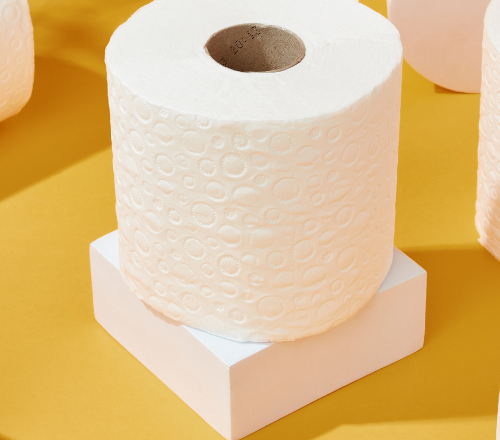Just like charity, they say sustainability starts at home.
So, if you and your family want to do your bit for the environment (and potentially even save some money while you’re at it), it’s time to start thinking about making your home as environmentally friendly as possible. But don’t worry – this doesn’t need to be as daunting (or as expensive) as you may be thinking. From adopting renewable forms of domestic energy to simply reducing the amount of plastic used in your home, starting with even the smallest changes in mindset, you and your family can become a whole lot more sustainable.
In this guide, we talk you through the basic changes you can make to help you live more sustainably and enjoy a more environmentally friendly home.
How to make your home eco-friendlier
Although the thought of adapting your home and domestic behaviours to live more sustainably may sound overwhelming, time-consuming and maybe even expensive, the truth is that adopting eco-friendly living practices without breaking the bank or sacrificing your chosen interior design preferences is actually really simple. Whether you live in a city centre apartment, a family terrace, or a country house, check out our top tips for embracing a greener lifestyle.
How to use more green energy in your home
The easiest way to use more green energy in your home is to use a green energy supplier. Many firms in the UK – including Npower, British Gas and Octopus Energy – offer special ‘green’ electricity tariffs. If you are on one of these tariffs, some or all of the electricity you use is ‘matched’ by the purchase of renewable energy that your chosen energy provider generates on your behalf. Due to current global circumstances, switching tariffs or energy suppliers may not be possible right now. But don’t worry, if you’re not already on a green tariff, there are other ways to use more green energy in the home.
If you are prepared to pay for initial installation costs, another way to use more green energy in your home is to invest in home rooftop solar panels or wind turbines. Modern solar panels now have the ability to generate up to 80% of the electricity an average family home needs, while small private wind turbines – despite being potentially loud – can cover all of your electricity needs.
What are energy efficient appliances?
As the name suggests, energy efficient appliances are common household electricals that have been designed to use electricity as efficiently as possible. These appliances can be recognised by looking at the energy efficiency ratings they have been awarded. By switching old energy-guzzling appliances with new, efficient products, you can make your household much more sustainable and even bring your electricity bills down in the process. From low-energy dishwashers and washing machines to eco televisions and energy-efficient kettles, there are now plenty of efficient appliances to choose from.
Remember – when purchasing new appliances, all you have to do is pay attention to the energy efficiency rating each item has been awarded. Every electrical appliance now comes with an EU energy label which grades the product from A to G based on how efficient they are. A is the most efficient and G the least.
Finally, no matter how efficient an appliance is, if you fail to turn it off properly after use, it is still using energy. This is not just bad for the environment; it can also increase your energy bills. Indeed, the typical UK household spends around £40 a year powering electricals left on standby mode. By remembering to switch appliances off at the plug after use, you can save money and ensure your home is greener.
How to reduce plastic in your home
Although you may not be able to see the visible consequences of your positive actions, simply reducing the amount of plastic usage in your home – especially when it comes to single-use plastics – can make a big difference in protecting the world’s oceans and other habitats. So, what are the easiest ways to reduce plastic usage in your home?
Nearly 40 million plastic bottles are used in the UK every day, of which 15 million are not recycled. By ensuring your family drinks from reusable bottles where possible, you and your family can do your bit to reduce the global plastic bottle problem.
Whether you’re talking about cleaning sprays, sponges and wipes or soap, shampoo and toilet roll, most cleaning and toiletry products come in single-use plastic containers or packaging. Reduce the amount of plastic waste in your home and save money by purchasing eco-friendly refill packs and refilling robust metal or glass spray bottles instead of plastic ones. Additionally, look for products that don’t come covered in unnecessary plastic packaging. Even small changes like switching to eco-friendly kitchen roll can make a big difference. This is especially true when it comes to changing ingrained attitudes relating to disposable plastics.
It is thought that over 200 million plastic toothbrushes are thrown away each year in the UK. By opting for more environmentally friendly plastic-free toothbrushes (such as bamboo toothbrushes), you can do your bit to reduce the amount of plastic ending up in landfill. In a similar vein, using biodegradable dental floss and purchasing plastic-free toilet paper is also a great way to ensure your bathroom is as green as possible.
Single-use plastic shopping bags are not only bad for the environment, supermarkets now also charge you for their use. With this in mind, switching to reusable ‘bags for life’ and/or strong tote bags to carry your shopping home is a good idea. And if you forget to take your reusable bags to the shop with you, try to purchase a paper or biodegradable option at the shop, rather than using a single-use plastic bag.
While avoiding single-use plastics in today’s world is almost impossible, what you can do is ensure you reuse and/or recycle these items. From takeaway containers that can be reused as small lunch boxes or fridge organisers to plastic drink bottles that can be repurposed as small planters, there are thousands of creative ways to reuse single-use plastics in the home.
For single-use plastic items that you cannot find a new purpose for, make sure you always recycle where possible. The majority of plastic items will now be labelled or stamped with a symbol that will let you know if the item can be recycled. Please note, depending on your local council, you will be able to recycle some items via your regular household recycling bin, while other items may need to be taken to local recycling centres or large supermarkets.
Why not make the switch today?
While the process of switching to a more sustainable lifestyle can be gradual, starting with even the smallest of changes can help to get the ball rolling. For example, you can simply switch your regular toilet and kitchen roll for greener alternatives. At Oceans, our toilet and kitchen rolls are 100% plastic free and are sourced from responsibly managed forests.




